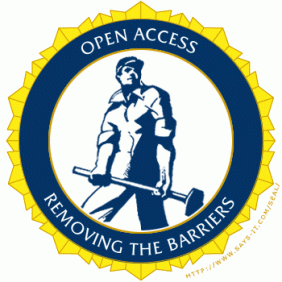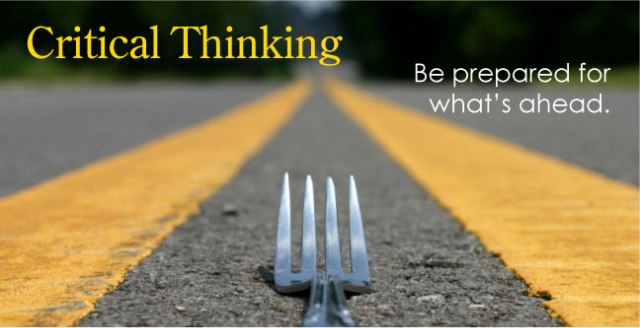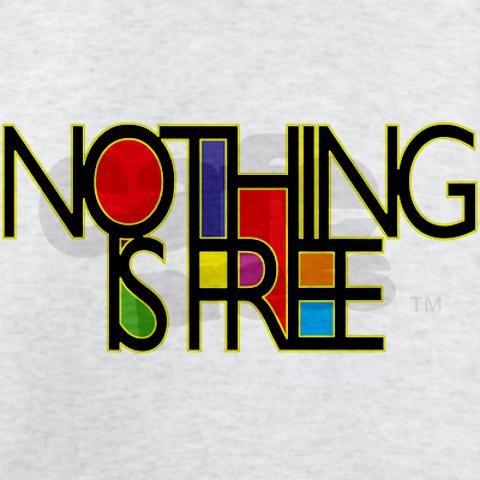Should content producers make their materials free? I strongly believe that the ideology of “open access” is contextual upon the content that is built.
These are some background information in context of learning which shows the motivation for a open access ideology.
Firstly, these are the Pros and Cons in regards to open access.
Pros:
Cons:
- Open access model will shift the supplier of money from the reader to the author. “We must be careful that this does not result in barriers to publishing because of prohibitively high author fees.”(Rockefeller University Press) This implies that authors not only create the content, but also pays to publish it for everyone to use it freely.
- Open Access models may drive publishers to publish more articles to cover their cost, hence reducing the overall quality. This was seen in a article where a science reporter spoofs hundreds of open access journals with fake papers.
- A given revenue model lacks universal applicability to all journals regardless of type or discipline. This can be seen more clearly in the article by SPARC. Another article by ICM talks about the forms of Open access consisting of green and gold.
If you have noticed while researching on this topic, most of the arguments for the favor of open access are mostly based on scientific publications. What about other industries? Should the same principle be applied to every industry?
Let’s look into the media industry, through digitization, advertising is weakening on newspaper and online sites because one can target ads through Google and Facebook to individual people, this should be apparent to us now through topics 1-4 in this module. “Media firms need another revenue source, subscriptions are a good one” However, many readers seems resistant to paying for online content (Fortune writer Adam Lashinsky).
The question is, if we used to pay for the services through “prints”, why can’t we do the same online? Where is this mindset that everything online should be free coming from?
I feel that authors should not be pressured by the public to practice open access in their work. This is a free world where the authors have the decision to choose if he wants the content to be free or not!
Authors should not be afraid of people who practices activism (where they exclude articles from their reviews just solely because they are not open access). I feel that there is nothing wrong with charging a fee for a “top quality” research and that people who truly appreciate the specific content that is created, shouldn’t mind going through the “paywall“.
(436 words)
References:
Medscape Log In. (n.d.). Retrieved November 11, 2015, from http://www.medscape.com/viewarticle/464149
Are the days of free content on the net numbered? – BBC News. (n.d.). Retrieved November 11, 2015, from http://www.bbc.com/news/technology-24759239
Rethinking the sustainability of Open Access and Open Science. (n.d.). Retrieved November 11, 2015, from http://blogs.oii.ox.ac.uk/cobo/2014/10/07/economically-sustainable-open-access-it-is-technically-feasible-or-not/
(n.d.). Retrieved November 11, 2015, from http://www.theguardian.com/science/2012/may/25/attacking-publishers-open-access-sustainable
Science reporter spoofs hundreds of open access journals with fake papers – Retraction Watch. (2013, October 3). Retrieved November 11, 2015, from http://retractionwatch.com/2013/10/03/science-reporter-spoofs-hundreds-of-journals-with-a-fake-paper/
http://www.edanzediting.com/blog/advantages_and_disadvantages_open_access#.VkK5PrcrLcs
SPARC. (n.d.). Retrieved November 11, 2015, from http://www.sparc.arl.org/resources/papers-guides/oa-income-models/intro
Digitalization and Digitization. (n.d.). Retrieved November 11, 2015, from http://culturedigitally.org/2014/09/digitalization-and-digitization/
Why is Science Behind a Paywall? (n.d.). Retrieved November 11, 2015, from http://priceonomics.com/post/50096804256/why-is-science-behind-a-paywall
(n.d.). Retrieved November 11, 2015, from http://www.forbes.com/sites/federicoguerrini/2015/01/27/the-dark-side-of-open-data-its-not-only-how-much-you-open-but-how-and-why/
(n.d.). Retrieved November 11, 2015, from https://www.fosteropenscience.eu/sites/default/files/pdf/815.pdf
Image credited to: https://tenthmedieval.files.wordpress.com/2014/08/open20access-seal.gif?w=500
Image credited to: http://library.hodges.edu/faculty/copyright/infographics
Image credited to: http://justpublics365.commons.gc.cuny.edu/files/2014/10/Problem-infographic3.jpg
Image credited to: http://www.ondemandleadership.com/wp-content/uploads/critical-thinking.jpg
Image credited to: https://risetorule.files.wordpress.com/2015/11/229f0-nothingisfree.jpg
Video credited to: https://www.youtube.com/watch?v=g2JT23E1bRE
Video credited to: https://www.youtube.com/watch?v=JgzQmc3m3rM





Hi Clinton
Commendable effort on the insightful post.
Firstly, I respect your stand that “advertising is weakening on newspaper and online sites.” I agree that advertising revenue for newspapers is weakening, however I would differ from your viewpoint that advertising revenue for online sites is diminishing.
I would like to cite a report conducted by Pew Research Center, in which the online advertising revenue had increase from $1,216 million in 2003 to $3,370 million in 2012. In addition, the marketing charts website is predicting online advertising to overtake TV advertising in 2019 which further illustrated the growth of online advertising, contradicting to your stand that advertising revenue for online sites is weakening.
I had attached the references underneath for your kind attention.
Moreover you mentioned that the concept of “paywall” for top quality research. Do you agree that the introduction of paywall is the best solution for top quality research? Does paywalls creates biasness in the comparison of rich and poor students? Poor students are deprived of the top quality research, therefore would it be ethical to introduce paywalls?
Personally I consider that top quality research should be shared freely, in order to assist the learning of others and this will allow researchers to contribute back to the society in the best possible way. Moreover the government could introduce awards and prizes being given to top researchers in order to compensate them financially for their hard work.
Lastly, feel free to discuss and I look forward to your constructive opinions!
Regards,
Wei Jie
(253 Words)
References:
Newspapers: By the Numbers. (n.d.). Retrieved November 12, 2015, from http://www.stateofthemedia.org/2013/newspapers-stabilizing-but-still-threatened/newspapers-by-the-numbers/
US Online and Traditional Media Advertising Outlook, 2015-2019. (2015, June 16). Retrieved November 12, 2015, from http://www.marketingcharts.com/traditional/us-online-and-traditional-media-advertising-outlook-2015-2019-55869/
LikeLiked by 1 person
Hey thanks for your insightful comment!
Firstly, when I mentioned in my post that “advertising is weakening on newspaper and online sites” it was mentioned too that this was because the income was being “stolen” to other platforms like Facebook and Google. The weakening was compared relatively to the exponential increase in money generated via Facebook and Google targeting ads. Yes I agree that advertising on the online sites for newspapers are increasing at a positive notion, however the amount generated from online sites is still nothing compared to the money that is “missed out” to Facebook and Google. Hence the overall statement that “advertising is weakening on newspaper and online sites”.
Secondly, you mentioned that “poor students are deprived of the top quality research, therefore would it be ethical to introduce paywalls?” This is a tricky question that differs from individuals, I personally feel that the world isn’t fair. It would not be right for us to classify the introduction of paywalls to be deem ethical or unethical. At the end of the day, the content is created by the producer and he or she have the final decision as of to make it free or paid. Yes, i know in the perspective of poor kids, they would not have the chance to access the content if its a paywalled content.
However, lets look at it in another perspective, if you invented a cure for cancer, will you give your formula to the world for free? or patent the formula so that people who wants the cure would have to buy it solely from you. Yes it is unethical to some as you have the cure but not making it free! However would you mind? with billions of dollars in your bank account, WILL YOU TRULY CARE? This example is exaggerated but you get my point.
LikeLiked by 1 person
Hi Clinton
Good post you got there including all the videos and images, definitely made reading more enjoyable.
You mentioned about how there is nothing wrong with charging a fee for a “top quality” research, yes this may be true. But what about those start-ups publishers? They may be able to produce “top quality” research as well but they probably do not have enough recognition from online users to be able to start charging them a fee.
Also, you talked about how digitization has affected advertising evolution from traditional advertising to digital advertising, do you think it will be a cost-effective way and a solution to earn profits for content producers and advertisers to collaborate together to offer free content with advertisements? You may want to refer to my post regarding my perspective on this. You can take a look at this article as well: http://www.pcworld.com/article/2035836/survey-internet-users-like-targeted-ads-free-content.html
I look forward to your constructive feedback!
Cheers!
LikeLiked by 1 person
Pingback: Reflection On Topic 5 + 2 Comments |
Hi Clinton!
What a captivating video!
Your choice of media was great which really helped me gain further insights of the perks of having Open Access resources. Thank you!
I do agree that there are a large percentage of false reports which are caused by publishers trying to rush to upload their articles online.
“However, many readers seem resistant to paying for online content”. “If we used to pay for the services through “prints”, why can’t we do the same online”.
So here is my question… If you were one of the readers, will you pay for green or gold access articles online and why?
“A given revenue model lacks universal applicability to all journals regardless of type or discipline. “ With this you’ve mentioned, what will you do to improve this issue?
Overall it was a good read! Feel free to drop by my blog to comment too!
Cheers,
Yixin
LikeLiked by 1 person
Pingback: Topic 5: Summary & Comments | YJunNing
Hey there Clinton!
This was a really enlightening read! You helped develop the ideas I had towards open-access in the perspective of both an end-user and a content producer. I especially appreciate the point you made about how the platforms have evolved – from paper to online, but we as end-users are open to the idea of paying for a conventional means of accessing content, yet are resistant when it comes to paywalls. This comparison has never hit me harder before – and it got me thinking, are people so resistant to change? Or is it the degree of change is far too great for them to accept?
What I mean by this is that we are in a digital age whereby we are so accustomed to instant gratification, and very often, we grow with a sense of self-entitlement. In our perception, content made available on the internet seems so easy – so I wonder, is this why we inevitably resist the idea that it is comparable effort to that of conventional print, hence in turn resist paying for the content?
At the same time, although I agree with your point of view that efforts should be recognised and rewarded hence a paywall is acceptable and content producers shouldn’t shy from paywalls due to public pressures, I feel that degree of learning for end-users, as well as the opportunity costs of gaining exposure and recognition for the content and content producer that comes with having a paywall, should be seriously taken into consideration first. Does monetary reward really outweigh all these opportunity costs?
In my post, I mentioned about ways I feel may help bring about a balance – frameworks to reward content producers passively for their efforts, as well as avenues whereby content producers can gain support with publication hassle and costs. Do drop by for a look! :o) I’m excited to hear what you think!
LikeLiked by 1 person
Pingback: Review: Let’s Be Open About… | Crystal Moh Writes
Pingback: Reflection on Open-access to Content, Do I Feel the Same About it as Before? | jastypes
Pingback: Reflective Summary | Believe you can and you’re halfway there. –Theodore Roosevelt
Pingback: Open Access or not, It’s THEIR choice | It Never Ends
Hello Clinton
Hopefully you do not miss my comment because I see a lot of comments on your post haha!
Your post especially this very sentence, “The question is, if we used to pay for the services through “prints”, why can’t we do the same online? Where is this mindset that everything online should be free coming from?”, sparked something in me. Yes exactly! Why do people believe that everything online should be free? Isnt it slightly unfair as we can go and buy textbooks but when it comes to an online article we shy away from paying it. I think there are a few factors behind this. As we pay for a textbook we get the hardcopy of it . We have always been so used to reading books and understanding them unlike their online counterparts, where what you paid for is not tangible.
I also feel the the media industry does need a new form of revenue and monthly subscription to the journals would help in the revenue, However, would that money cover costs? Would people still read the article and pay for it? Do you have enough audience that is willing to pay? I feel that these factors need to be considered first, before thinking of a paywall.
211 words
LikeLiked by 1 person
Pingback: Let us look back! | Answers and more..